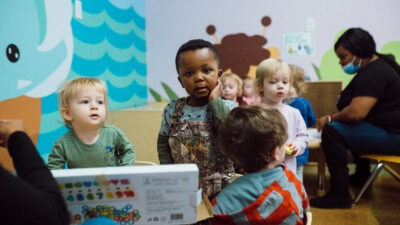The Power of Community
President Biden’s first State of the Union Address was delivered on March 1, 2022, as the United States attempts to emerge from a crippling pandemic that has led to significant losses for communities. Across the country and across the globe, there has been a loss of life, loss of learning, and loss of financial security. While there has been recovery, it’s been uneven and inadequate for many who continue to fall further behind.
Acknowledging the deep pain and significant costs of this moment, the President’s message sought to provide a unifying vision for a brighter, stronger tomorrow. The President showcased the need for policies that can create greater opportunity, accountability, and promote transformative healing in the lives of children, families, and communities. Commitments were made to ensure greater equity, inclusion, and fairness in institutions.
Thundering ovations welcomed and acknowledged the bravery, resolve, and power that flows through and from community with the illustrations of health care workers, immigrants, truth tellers and youth advocates facing challenging circumstances and impossible odds. Communities provided examples of how change can be possible if given the opportunities to succeed.
At the W.K. Kellogg Foundation, we know firsthand that there is power in communities. Communities have a deep understanding of the impacts of policies and know best how to solve problems. When they have a hand in creating, negotiating and implementing solutions, the policies are more relevant, more likely to be embraced and more sustainable. Ensuring that decisionmakers are informed and guided by the experiences, knowledge and solutions found in communities is critical.
As policy leaders debate and decide the direction of the country, it will be important for them to remember that communities are more than an applause line, but an active part of a thriving democracy. Our leaders would be well-served to guarantee communities’ voices are heard, their votes can be cast, and their needs addressed to safeguard a strong, inclusive recovery and democracy.







Comments